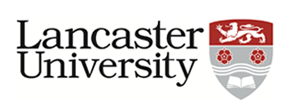生物统计
生物统计学是一门探讨如何从不完整的信息中获取科学可靠的结论从而进一步进行生物学实验研究的设计,取样,分析,资料整理与推论的科学。简单点说,就是用统计方法研究分析生物/医学上的数据。属于跨学科专业,跟数学、统计生物信息、计算机 (尤其是data mining) 等关系很密切。
专业设置
生物统计:是美国统计学专业最为热门的一个分支,该专业主要将统计学的理论应用在生物领域,用于探讨如何进行生物实验研究的设计,取样,分析,资料整理与推论的学科,该专业不需要申请人有很强的生物背景。很多学校的生物统计也是开设在公共卫生专业下面,也有一部分是属于统计的一个分支,例如斯坦福大学、芝加哥大学、杜克大学。也有学校开设在医学院下面.
就业方向
生物统计的毕业生不管是硕士还是博士,都很好找工作。几年很多美国的大制药公司很不景气,所有的大公司都先后进行了大规模的裁员,但是这并不影响生物统计的就业。尽管生物统计并不是公司里的核心部门,但是任何有大量医学/生物数据需要处理的公司,都需要一个稳定的 生物统计专业团队来作为支持,可以说现在生物统计专业还是需求大于供给,会逐渐朝着供需平衡方向发展的。
就业方向:
A 制药公司或者生物技术公司很需要
B金融和保险行业。
C医院或者科研机构工
1. Biostatistics学位设置
Master of Public Health(MPH)
Master of Science(MS)/MA
PhD/DrPH
The MPH in biostatistics is a professional degree program that prepares students with a prior professional degree (physicians, nurses, dentists, pharmacists, veterinarians, or health administrators) to understand and apply statistical methods to health problems in their field. This degree emphasizes the appropriate application of statistical methods, with less emphasis on statistical theory as compared to the MS degree.
A.以哥大为例:
公共卫生学院下,开设有MPH和MS学位,MPH我们目前没有办法申请,要求如下
https://www.mailman.columbia.edu/become-student/degrees/masters-programs/masters-public-health/accelerated-mph
Applicants for the Columbia MPH must select a department. While most candidates require two years to fulfill their requirements, a one-year Accelerated MPH program is available to select candidates. (Note: the MPH in Biostatistics is only offered through the Accelerated MPH program.)

The Master of Science (MS) in Biostatistics可以申请
https://www.mailman.columbia.edu/become-student/degrees/masters-programs/master-science
The Department of Biostatistics offers five MS programs:
· Accelerated Predoctoral Training Track
申请的时候选择其中一个方向,对于这几个方向的要求,最后一个是可以选的
Admissions Information
Applicants should have some background in college mathematics, including at least a year of calculus. A semester of linear/matrix algebra is highly encouraged. Students with strong scores on the quantitative section of the GRE are given first preference. As with all Biostatistics programs, the most important ingredients for the MS/TM are a facility for quantitative reasoning and a true enjoyment of working with data.
Electives
Students choose two or more courses from the list below or from alternatives approved by their academic advisors. (Please note: P8100 and P8110 are not acceptable electives for the MS/TM track).
2.关于Difference between the MS and MPH Degrees in Biostatistics以佛罗里达大学为例
http://biostat.ufl.edu/education/ms-in-biostatistics/
The University of Florida offers both a Master of Science (MS) degree in Biostatistics and a Master of Public Health degree with a concentration in Biostatistics. While both are valuable degrees, the target audiences are different.
· The MS degree is suitable for students with a substantial mathematics background, including at least three semesters of Calculus and a semester of linear algebra, as well as some training in statistics and probability, including at least a basic statistics course, and ideally including undergraduate coursework in calculus-based probability and mathematical statistics.
· The MPH degree is designed primarily for students with a previous graduate degree, particularly in the health sciences, who want to obtain more skills in quantitative and analytic methods for public health research. There are no formal mathematics or statistics prerequisites for the MPH degree.
The mathematical level of the biostatistical courses required by the two degrees differs substantially.
(1)MS项目Curriculum Overview
Core Courses
Overview
A minimum of 36 post-baccalaureate credit hours is required. Upon successful completion of the program, graduates will be awarded an M.S. degree in biostatistics.
The credits are broken down as follows:
|
Component |
# of credits |
|
Core Biostatistics courses |
15 |
|
Core Public Health courses |
3 |
|
Consulting requirement |
3 |
|
Biostatistics/statistics electives |
15 |
|
Total |
36 |
Comparison to M.S. in Statistics
The curriculum shares some components with the M.S. in Statistics (in particular, the theoretical core because the theoretical underpinnings of statistics and biostatistics are similar and therefore did not require new course development.)
However, there is different emphasis in the methodology courses, with the core courses covering methodology for categorical data in Biostatistical Methods II and survival data and clinical trials.
In addition, there is a ‘subject matter’ component in the M.S. in Biostatistics, consisting of the Public Health core courses as well as a consulting requirement.
These are key components in training for Biostatistics, but are not requirements in the M.S. in Statistics.
(2)Master of Public Health
The Master of Public Health program is a 2-year, 48-credit graduate degree program. The first four semesters usually involve traditional coursework, while the last semester is devoted to a practice-based internship, which includes a special project.
Courses
he Department of Biostatistics offers courses for three degree programs within the department (PhD, MS, and MPH) as well as courses for students from other departments and program. Students in the Department of Biostatistics also take courses offered by the Department of Statistics and the College of Public Health and Health Professions.
MS and PhD Courses
GMS 6827 – Advanced Clinical Trials III (3)
PHC 6020 – Clinical Trials Methods (3)
PHC 6050c – Biostatistical Methods I (3)
PHC 6051 – Biostatistical Methods II (3)
PHC 6063 – Biostatistical Consulting (3)
PHC 6068 — Biostatistical Computing (3)
PHC 6092 — Introduction to Biostatistical Theory (3)
PHC 6937 – Applied Biostatistical Computing Using SAS
PHC 6937 – Applied Survival Analysis (3)
PHC 6937 – Stochastic Modeling (3)
PHC 6937 – Stochastic Epidemic Modeling (1)
PHC 7056 – Longitudinal Data Analysis (3)
PHC 7066 – Large Sample Theory (3)
PHC 7090 – Advanced Biostatistical Methods I (3)
PHC 7091 — Advanced Biostatistical Methods II (3)
PHC 7925 – Biostat Journal Club (1)
PHC 7979 – Advanced Research (Variable)
PHC 7980 – Research for Doctoral Dissertation (Variable)
STA 6177 – Applied Survival Analysis (3)
STA 7179 – Survival Analysis (3)
MPH Courses
The following courses are offered as part of the MPH program at the University of Florida. These courses may also be appropriate for non-majors in a variety of fields who wish to learn more about the application of statistical methods in the health sciences.
PHC 6050 – Statistical Methods Health Science 1 (3)
PHC 6052–Introduction to Biostatistical Methods (3)
PHC 6053 – Regression Methods for Health and Life Sciences (3)
PHC 6055 – Biostatistical Computing Using R (1)
PHC 6080 – SAS for Public Health — Data (1)
PHC 6081 – SAS for Public Health — Analysis (1)
This course covers the use of SAS to analyze public health data. Students will learn how to use common SAS procedures to conduct common statistical analyses. Although we will discuss results, this course does NOT teach statistical methods. A full syllabus for this course is available on the MPH Biostatistics courses page on the MPH program website.
Other Department of Biostatistics Courses
These following courses are designed to give clinicians in the UF Health Science Center an opportunity to learn more about the application of statistical methods. These courses may also be appropriate for non-majors in a variety of fields who wish to learn more about the application of statistical methods in the health sciences.
GMS 6818 – Design and Conduct of Clinical Trials I (2)
GMS 6819 – Design and Conduct of Clinical Trials II (2)
GMS 6841 – Design and Analysis of Translational Research in Biomedical Sciences (2)
GMS 6861 – Applied Biostatistics I (3)
GMS 6862 – Applied Biostatistics II (3)
Department of Statistics Courses
The following courses offered by the Department of Statistics are taken by MS or PhD students in the Department of Biostatistics.
STA 6326 – Introduction to Theoretical Statistics I (3)
STA 6327 – Introduction to Theoretical Statistics II (3)
STA 7346 – Statistical Inference (3)
Public Health Courses
The following courses offered by the MPH program in the College of Public Health and Health Professionsare taken by MPH, MS, and PhD students in the Department of Biostatistics.
PHC 6001—Principles of Epidemiology in Public Health (3)
HSA 6114—Introduction to the U.S. Health Care System (3) – This course is designed to PHC 6313—Environmental Health Concepts in Public Health (3 or 2)
PHC 6410/formerly 6406—Psychological, Behavioral, and Social Issues in Public Health (3)
PHC6937 – Introduction to Public Health (3)













